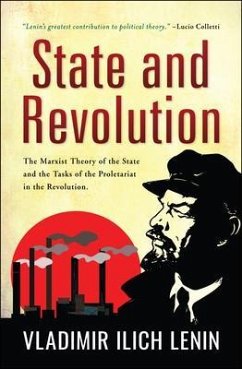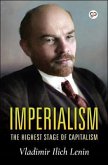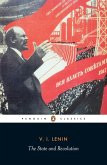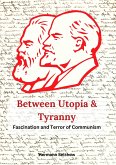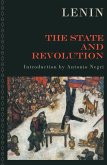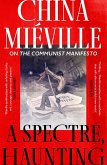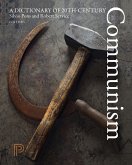Lenin wrote State and Revolution in 1917, while he was hiding from the Russian secret police. The book describes the inherent nature of the State as a tool for class oppression, a creation born of one social class's desire to control all other social classes.
Drawing on detailed quotes from Karl Marx and Friedrick Engels, Lenin lays down a Marxist view of the state, describes how a working-class revolution will overthrow it, and goes further in showing how social democracy is not enough-even in democratic republics such as those enjoyed by many western countries today, the ruling class is still in control of society, and will never relinquish power. According to Lenin, a Communist revolution is the only remedy for class struggle.
This work by Lenin is important to communist thinking and the Marxist concept of the state which is clearly and concisely expressed in this book. Without doubt this is a classic work and will give the reader important concepts in the theory of Marxist-Leninism.
Drawing on detailed quotes from Karl Marx and Friedrick Engels, Lenin lays down a Marxist view of the state, describes how a working-class revolution will overthrow it, and goes further in showing how social democracy is not enough-even in democratic republics such as those enjoyed by many western countries today, the ruling class is still in control of society, and will never relinquish power. According to Lenin, a Communist revolution is the only remedy for class struggle.
This work by Lenin is important to communist thinking and the Marxist concept of the state which is clearly and concisely expressed in this book. Without doubt this is a classic work and will give the reader important concepts in the theory of Marxist-Leninism.
Dieser Download kann aus rechtlichen Gründen nur mit Rechnungsadresse in A, D ausgeliefert werden.

